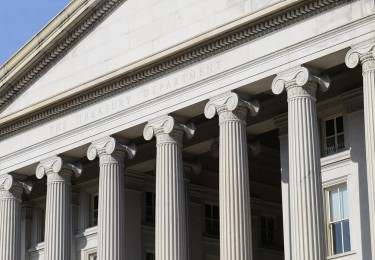
Brexit vs China: Which one's the real bull in the shop?
Brexit uncertainty continues to fuel investor concerns, but we shouldn’t forget the small matter of slowing growth in the world’s second biggest economy…
3 min read
While UK newspaper front pages still shout ‘BREXIT!’ day in, day out, the business pages are increasingly discussing the economic slowdown in China.
Both are undoubtedly big issues for investors. Both are genuine causes for concern. But only one of them has the potential to cause issues on a global scale.
John Bull and a China shop
China accounts for a third of the world’s growth. If its economy slows, the world economy slows. Many countries and companies rely on China to buy goods from them – in 2017 alone the country imported $1.8 trillion of goods from across the globe. If it had to tighten its purse strings and buy less stuff, the entire global economy would feel the pinch.
Brexit, on the other hand, is a much more contained issue. The UK’s imports equate to about a third of China’s total imports. So anything that happens to the UK economy is much less likely to cause shockwaves across the globe.
The worst case Brexit scenario is widely believed to be a ‘no-deal’ departure, which would probably see sterling and UK government bond yields drop sharply.
If that happens, the weaker currency would hurt companies focused on the UK domestic market. But because of its history as a global centre of trade and finance, the UK is home to a comparatively high number of multi-national companies. These companies would benefit from a weaker sterling – which would make them more competitive and increase the value of their overseas earnings.
So even for UK equities, the risks around Brexit aren’t entirely straightforward.
“At Coutts we closely monitor economic data to understand all sources of risk and, as global investors who hold diversified portfolios, focus on what could shift the world economy.”
Become A Client
When you become a client of Coutts, you will be part of an exclusive network.
Balancing risks appropriately
Coutts Investment Strategist Lilian Chovin says, “Investors need to understand the risks to their portfolios in the context of the bigger economic picture. For us, while Brexit is making all the noise at the moment, China is the real one to watch.
“At Coutts we closely monitor economic data to understand all sources of risk and, as global investors who hold diversified portfolios, focus on what could shift the world economy. This helps us ensure we can re-align our portfolios when necessary to keep them as well-positioned as possible whatever the market conditions.”
Little and large: The UK and China in numbers
| UK | China | ||
|---|---|---|---|
| Population* | 66 million | 1.4 billion | China’s huge population drives demand for products from around the world. |
| GDP as percentage of global GDP* | 3% | 15% | China’s contribution to the world economy is more than four times that of the UK. What happens there is far more likely to affect investment markets across the globe. |
| Imports (in 2017)** | $616 billion | $1.8 trillion | China contributes much more than the UK to the world economy through the goods it buys and sells with the rest of the world. |
| Exports (in 2017)** | $441 billion | $2.3 trillion | |
* Source: World Bank, data as at end 2017 ** Source: IMF - International Financial statistics/ Reuters Thomson Eikon, as at end 2017 |
|||
Chinese recovery remains to be seen
Latest official data shows that China’s economy grew by 6.6% in 2018, the slowest rate since 1990. This compares to a peak of over 14% in 2007. Economic growth in China has been slowing for a decade, largely as a result of the country’s attempts to move away from an export-led, manufacturing-based economy and create a more sustainable, domestically focused, service-based economy.
The government is doing all it can – increasing its spending and introducing tax cuts – to manage the slowdown and avoid a ‘hard landing’ that would spread economic turbulence.
As Lilian explains, “Looking at some key measures of the health of China’s economy – including the country’s car production, housing market and credit levels – it appears to be stabilising. But it is not rebounding yet.
“We are therefore currently cautious on China. We continue to hold some exposure to Chinese stocks, the prices of which are quite low reflecting the current situation. Such stocks could become very attractive if the government’s measures do the job for the Chinese economy, but we stand ready to make changes if necessary.”
Brexit breakthrough could boost UK economy
As for the UK, the seemingly constant run of Commons debates, MP votes and – most recently – hotel bar comments continue to keep people guessing about the country’s departure from the European Union.
“The key thing about Brexit for investors is the uncertainty it’s creating,” says Lilian. “Companies are spending time and resources thinking about it and planning for it, instead of doing their day jobs – creating new products and making more money.
“But once a way forward is known – whatever that turns out to be – we should see some stability, even some progress, return to the UK economy.”
Read more of our thinking about the year ahead for investors in our 2019 investment outlook, Children of the Revolution.
When investing, past performance should not be taken as a guide to future performance. The value of investments, and the income from them, can go down as well as up, and you may not recover the amount of your original investment.
About Coutts Investments
With unstinting focus on client objectives and capital preservation, Coutts Investments provide high-touch investment expertise that centres on diversified solutions and a service-led approach to portfolio management. Our investment process is as disciplined as it is creative – ensuring tailored solutions with robust results.
Discover More About Coutts Investments

.jpg.rendition.375.260.jpg)








